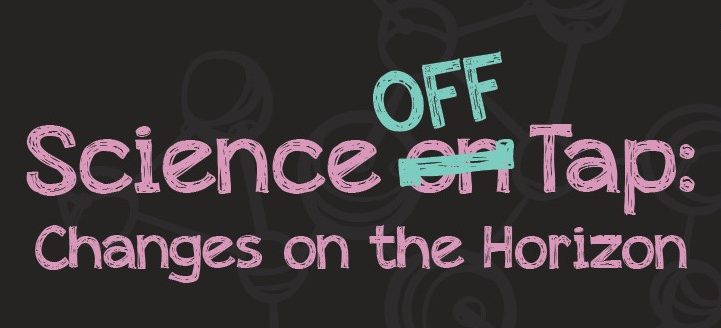GAINESVILLE, Fla. — The Sunshine State is experiencing many environmental challenges, but how will these changes affect the future? The Florida Museum of Natural History and University of Florida Thompson Earth Systems Institute invite guests to grab their favorite local brew and join us virtually to learn from scientists about urban streams, trafficked wildlife and mangroves at the fall “Science Off Tap: Changes on the Horizon” series on Sept. 10, Oct. 8 and Nov. 12.
 The virtual events are free, and attendees have the choice of joining via Zoom or watching live on the TESI and Florida Museum Facebook pages. The events run from 7 to 8 p.m., with the scientist’s talk lasting for about 30 minutes before the floor is opened for questions.
The virtual events are free, and attendees have the choice of joining via Zoom or watching live on the TESI and Florida Museum Facebook pages. The events run from 7 to 8 p.m., with the scientist’s talk lasting for about 30 minutes before the floor is opened for questions.
Event dates and topics are Sept. 10, “Urban Streams,” with AJ Reisinger, assistant professor of urban soil and water quality at the University of Florida Soil and Water Sciences Department; Oct. 8, “CSI Wildlife,” with Madelaine Verbeek, UF master’s student studying wildlife forensic sciences and conservation; and Nov. 12, “Mangroves on the Move,” with Julie Walker, Marine Conservation Fellow at UF’s Whitney Lab for Marine Bioscience.
Typically, Science on Tap has been held at two local watering holes: First Magnitude Brewing Company and Cypress and Grove Brewing Company. It was a chance to bring science to an informal setting, said Chelsea Collison, an educator with the Florida Museum. With COVID-19 restrictions, she hopes to bring the same energy to a virtual setting while maintaining the longstanding partnerships with the breweries.
The first 50 people to mention the “Science Off Tap” program when picking up beer from either of the breweries from Sept. 3 to Sept. 10 will receive a Florida Museum sticker with their order.
“While it’s a bummer we can’t see everyone in person this fall, we promise that you won’t want to miss this incredible line up of speakers and topics,” Collison said. “And, as usual, we plan to have audience participation throughout to keep you on your toes.”
In the past, scientists were selected based on what topics were lined up for the series. But this time scientists were selected as part of a new Science on Tap Professional Development Program for Early-Career Scientists. To apply, early-career scientists studying air, water, land or life submitted an audition video detailing their research topic and why they believe it’s important to Floridians.
During the six-week training, scientists learned how to build trust and support for science, the best practices of storytelling, and techniques for giving engaging talks in a virtual setting. Their upcoming Science Off Tap talks are considered their final project in the program.
“The Science on Tap Professional Development Program helped us reach two goals that are important to TESI and the Florida Museum: helping scientists better communicate with the public and sharing science in a way that gets audiences excited to take action,” said Sadie Mills, program coordinator and educator for TESI.
AJ Reisinger, one of the first participants in the program and the Sept. 10 presenter, said he is excited to demonstrate his new communication skills at next week’s event.
“During this training, I learned how important it is to identify a singular theme or goal for my presentation and then to identify and use specific pieces of evidence to achieve that goal. Framing my presentation around the ‘so what’ instead of the ‘how’ was important and I think will lead to a more relatable and understandable presentation,” Reisinger said. “I also learned the importance of engaging with my audience from multiple different perspectives, allowing for people with different learning styles to understand my work.”
For more information and to register for these programs, visit www.floridamuseum.ufl.edu/calendar/tag/science-off-tap or download the event flyer.
-30-
Sources: Sadie Mills, 352-273-1936, smills@floridamuseum.ufl.edu;
Chelsea Collison, 352-273-2062, ccollison@floridamuseum.ufl.edu
Media contact: Rebecca Burton, 352-273-4935, rlburton@floridamuseum.ufl.edu